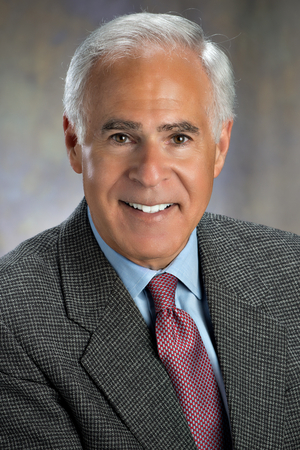
A Beaumont physician and OUWB professor said it’s possible for people to “overdose (on) exercise” during a session held on Research Day of the 11th Annual William Davidson Medical Education Week.
Barry A. Franklin presented “Extreme Exercise and Cardiovascular Health: Changing Paradigms and Perceptions.” More than 20 people attended the virtual event – one of nine held on Research Day, and of nearly 30 held throughout the week.
Franklin is a professor in OUWB’s Department of Internal Medicine, and director, Preventative Cardiology/Cardiac Rehabilitation, Beaumont.
During his session, Franklin focused on extreme exercise and its association with cardiovascular health. He noted that there is such a thing as too much of a good thing, and provided studies showing too much exercise can lead to health problems. One in particular he praised was done by Justin Trivax, M.D., a former fellow who now works at Beaumont.
 |
| Franklin |
“It highlights (that) just like medication… you can overdose exercise and get yourself in trouble,” Franklin said.
Those who are most at risk are those who only occasionally do high intensity, vigorous exercise. Some people also have inherited cardiovascular conditions, such as arrhythmogenic right ventricular cardiomyopathy.
On the other end of the spectrum, he said, are those who run the risk of overdoing it.
He called it a “population paradox.”
“We’ve got a subset of the population, sometimes they’ll be your patients… who are involved in what I call high volume, high intensity exercise training,” he said. “We’ve also got a large percentage of the population… who’s doing little or no exercise.”
To stress the point that both can be dangerous, Franklin cited a study from 2014 that found the cohort who rarely, if ever, exercised had the highest incidents of cardiac events but noted that the second highest at risk were those who exercised daily.
It’s all about finding a healthy balance, he said.
In talking about the benefits of regular exercise, Franklin noted that an increase of 1 MET (Metabolic Equivalents) — the amount of oxygen your body uses at rest — in cardiorespiratory fitness is associated with a 15% reduced risk of dying from an acute cardiac event.
He also said that regular exercise like walking can lead to immediate progress in increasing mortality and other benefits like improved lipids.
“For most people, the benefits of moderate to vigorous exercise outweigh the risks, without question.” he said.
Ann Voorheis-Sargent, Ph.D., director of the Center for Excellence in Medical Education (CEME), and the co-chair of the 2022 Med Ed Week committee, spoke about what it means for Franklin to be part of Med Ed Week.
“He is a true educator and really enjoys teaching and learning,” Voorheis-Sargent said.
To request an interview, visit the OUWB Communications & Marketing webpage.
NOTICE: Except where otherwise noted, all articles are published under a Creative Commons Attribution 3.0 license. You are free to copy, distribute, adapt, transmit, or make commercial use of this work as long as you attribute Oakland University William Beaumont School of Medicine as the original creator and include a link to this article.

